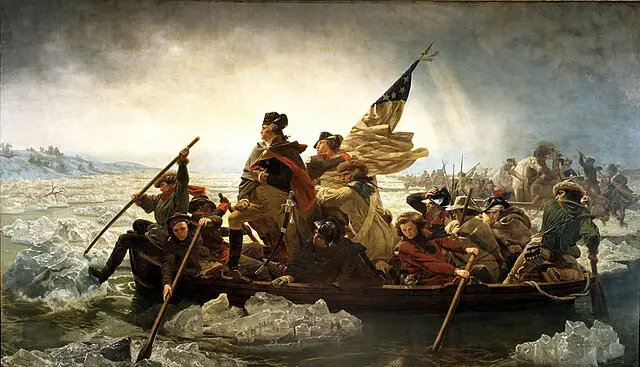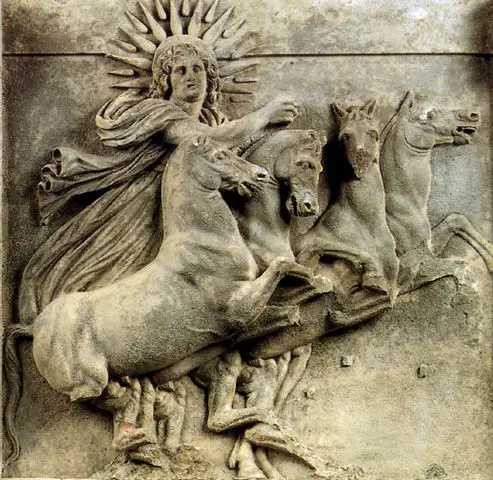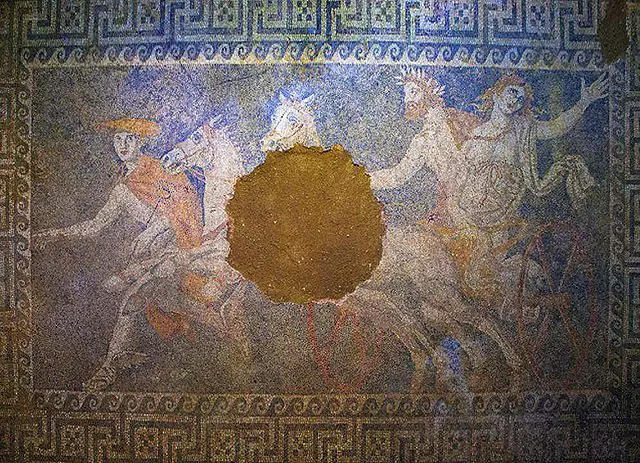| Born | 15th of October, 70 BC |
| Died | 21st of September, 19 BC |
| Famous Quote | “Fortune sides with him who dares.” |
| Known For | Creating Rome’s national novel The Aeneid and several other foundational Latin novels |
| Region of World | Italy, Rome, 1st Century BC |
Virgil remains one of the greatest late Roman Republic/early Empire Roman Poets who ever lived. Through his writting we can see 3 ways in which he glorifies the Roman people. We can see this through his most famous work the Aeneid.
It is through the Aeneid that Virgil glorifies the Roman people in 3 distinct ways. First, Virgil presents a story of Roman military superiority over the Latins. Second, Virgil glorifies the Roman people’s morals by using the character of Aeneas as a foil. Third, Virgil presents a divine mandate for the continuing superiority of the Roman people in the future.
My master’s thesis provides a deep dive into how Virgil identifies and glorifies the Roman people (populus Romanus) in his Aeneid. It is by critically reading Virgil’s epic novel that we can see exactly how he glorifies the Roman people themselves.
Here at The History Ace I strive to publish the best history articles on the internet. If at the end you enjoyed this article then consider subscribing to the free newsletter and sharing around the internet.
Without further ado, here are the 3 ways Virgil’s Aeneid glorifies the Roman People.
Virgil Presents A Story of Roman Military Superiority Over The Latins
One of the main ways that Virgil glorifies the Roman people in his Aeneid is by presenting a story of military superiority over the Latins.
The story of the Aeneid tells the tale of the Trojan/Roman mythical hero Aeneas and his adventures to establish what would eventually be called Rome.
After wandering around the seas that surround Italy Aeneas and his men land at the mouth of the Tiber river in a location near modern Rome. After this the local Latin tribes began at once to fight with the Romans.
Here Virgil presents a story of how Aeneas would have to unit the Roman people to fight off the numerically superior Latins. To the Roman people who would hear or read this story this would glorify their military superiority over the Latins of Italy.
This was important as shortly before Virgil’s time the Roman Republic entered into a pointless war over giving the Latin allies of Rome voting rights in the Roman assemblies.
In Virgil’s Aeneid Virgil glorifies the Roman People by reasserting their right to rule over all their local Latin allies. Simply put, a Roman man hearing Virgil’s story will recount how since he was Roman he was superior to the rest of Italy.
As a result, Virgil was glorifying the Roman people by telling an epic story of how Rome came to dominate its neighbors.
Virgil Glorifies The Roman People By Using the Main Character Of Aeneas As A Literary Foil For Roman Morals
Another way that Virgil glorifies the Roman people in the Aeneid was by using the main character of Aeneas as a literary foil for Roman morals.
The Roman people believed that one of the reasons for the success of their empire was because of their superior morals.
Throughout the Aeneid Virgil gives his Roman audience stories of how Aeneas would grapple with what he wanted to do and what was expected of him.
The Roman people had a firm set of unwritten Roman morals that all Romans were expected to follow. Today modern historians call this the Roman constitution but during the time of the Roman people this was called the mos maiorum or social norm.
The first image in this section details one of the expected superior morals of a Roman person, the roman moral of pietas. In the image we can see Aeneas carrying his father as he escaped from the burning of Troy, Pietas simply means duty towards one homeland and family.
There are 7 main virtues in the Roman moral code.
- Fides
- Being honest and trustworthy. From this Romans would expect a person to be reliable and not lie.
- Pietas
- Duty and respect towards one’s home and family. From this all Romans were expected to put their fellow Romans and family before themselves.
- Religio/Cultus
- The adherence to tradition and religious institutions. From this the Roman people were expected to behave according to the traditions of their ancestors.
- Disciplina
- Roman people were expected to show self control and adhere to orders. From this we would get the military bearing of the Legions.
- Gravitas
- Dignified self control, sacrifice, and honor. From this the Roman people were expected to always work towards the greater good of their society while also holding respect for themselves and others.
- Virtus
- To the Roman people the concept of virtue was a masculine trait, this was the concept that the men of Rome should be taught to distinguish between good, bad, and honorable.
- Dignitas/Auctoritas
- If a Roman were to display all of these virtues over the course of their life they would slowly obtain dignitas or dignity. From this dignity they would obtain authority of Auctoritas over their fellow Romans.
Virgil would play each one of these virtues against themselves in Rome’s foundational epic the Aeneid by having Aeneas fight over what he wants to do and what is expected of a good Roman.
This remains one of the main ways in which Virgil glorifies the Roman people. He demonstrates that the Roman people hold these virtues and as such they are just as honorable as their foundational hero Aeneas.
Virgil Presents A Divine Mandate Of The Continuance of Roman Superiority
Another way in which Virgil glories the Roman people in his Aeneid was by providing a divine mandate that explained why the Romans should rule over all society.
The Romans were a very spiritual people. In the Aeneid Virgil presents a story of how Roman gods would fight over whether or not to help Aeneas establish what would become the Roman Republic.
However in the end Aeneas is given the blessing of the Roman gods to establish the city of Rome. This would have resonated within the Roman people who would see this as an divine mandate on why they should rule the world.
To demonstrate this there is a scene in the Aeneid where Aeneas is marching with his Latin allies to fight over the fate of Rome. The goddess Venus wished to help Aeneas in his fight against the native inhabitants of Italy. She would ask her husband Vulcan the god of fire and forging.
Vulcan would forge a shield for Aeneas that had an inscription that outlined the glory of the Roman people over the next several centuries.
This would have resonated across Virgil’s audience who saw that they themselves were being glorified through this allegory.
As such this divine mandate of the superiority of the people of the city of Rome remains one of the ways in which Virgil glorifies the Roman People.
Conclusion
There you have it; 3 ways Virgil glorifies the Roman People in his Aeneid.
Virgil today remains a fascinating figure of study. Prospective history graduate students wishing to push themselves could undertake a close reading of how Virgil glorifies the Roman People in his work.
Here at The History Ace I strive to publish the best history articles on the internet. If you enjoyed this article consider subscribing to the free newsletter and sharing around the internet.
Further you can check out some of the other articles below.
-
How The American Revolution Changed The World

Here is how the American Revolution changed the world. Many people are not aware of just how important this event actually was.
-
Why The Roman People Loved Chariot Racing

Why did the Roman people love chariot racing? Well it all comes down to these 3 reasons.
-
The Design and Color of Roman Chariots

What was the design and color of Roman Chariots? Were they faster or slower then normal chariots? Well here is everything!
Sincerely,
Nick